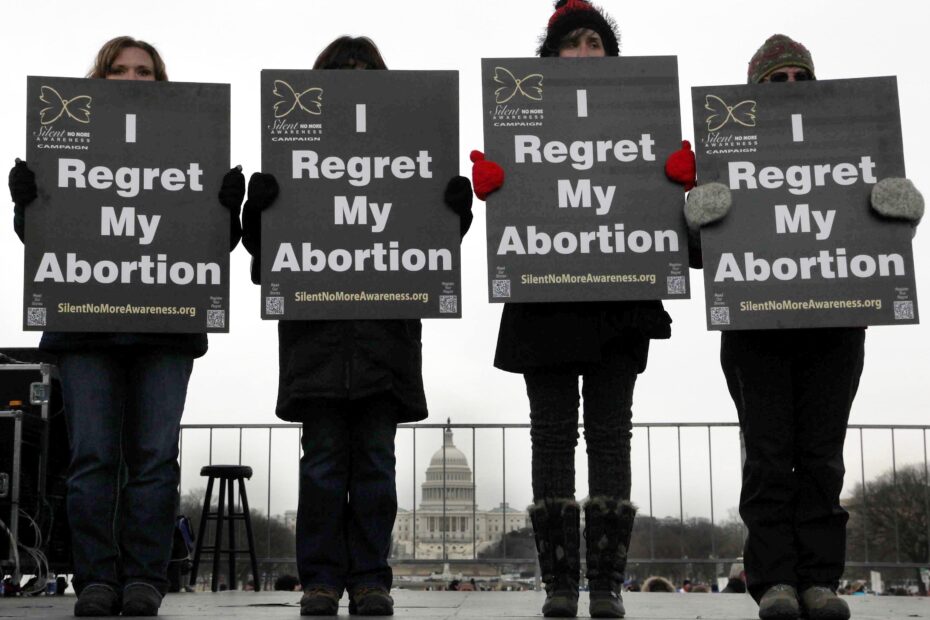By Nicole M. King
22 January 2016 marked the 43rd anniversary of Roe v. Wade, and also the closest the U.S. has perhaps ever come to federal defunding of Planned Parenthood. But new efforts are fighting such pro-life victories.
On Tuesday of that week, the 1 in 3 Campaign, a project of the nonprofit Advocates for Youth, hosted a six-hour livestream wherein women shared their personal abortion stories. The purpose? “Running away from abortion and not talking about abortion and acting like there’s something wrong with abortion does a disservice to everyone who’s had one and does a disservice to those who provide them,” Lizz Winstead of the Daily Show, who was one of the participants, told The Daily Beast. Abortion, these women believe, is a subject that has been forced into the shadows. Winstead believes that until the day comes when women can open up about their abortion experiences, “those of us who feel like we have the strength, the privilege, to tell our stories . . . give [abortion] a context that makes sense, that normalizes it, [and] that takes the shame away.”
The general tone of such stories was that abortion allowed these women to be happy, to lead fulfilling lives, and that there was no reason for regret. But research suggests that, in spite of such rhetoric, “normalizing” abortion will lead to more and more unhappy women.
“Young women reporting abortions had elevated rates of mental health problems when compared with those becoming pregnant without abortion.” The litany of psychological problems associated with abortion includes “depression, anxiety, suicidal behaviours, and substance use disorders.”
The New Research – The Dark Shadow of Abortion
For years, feminist activists have been congratulating themselves on having won for American women a nearly unfettered right to abortion. That these activists ignore the unborn lives snuffed out has deeply troubled many Americans. But new research is raising troubling questions even for Americans willing to focus exclusively on the well-being of the women who seek abortions.
Recently published in the Journal of Child Psychology and Psychiatry, a study conducted by researchers at Christchurch Health and Development Study indicates that when young women abort their unborn children, they often subsequently suffer from a range of serious psychological problems. Examining data collected from 520 New Zealand young women for the first 25 years of their lives, the Christchurch scholars adduce evidence that “young women reporting abortions had elevated rates of mental health problems when compared with those becoming pregnant without abortion.” The litany of psychological problems associated with abortion includes “depression, anxiety, suicidal behaviours, and substance use disorders.”
The association between abortion and psychological vulnerability persists in statistical models that take into account differences in psychological history and disparities in economic and social circumstances. The researchers interpret the persistence of this linkage as strong evidence of “a possible causal linkage.” Further statistical analysis clarifies the direction of causation, with the data indicating that “abortion leads to increased risk of mental health problems.” The data do not support the view that “mental health problems lead to increased risk of abortion.”
The Christchurch scholars acknowledge that their findings are “inconsistent” with a statement published by the American Psychological Association (APA) assuring Americans that “risk of psychological harm is low” for women who undergo abortions. However, the Christchurch scholars complain that the APA’s “relatively strong conclusion about the absence of harm from abortion was based on a relatively small number of studies which had one or more . . . [methodological] limitations.” Underscoring their skepticism with regard to the APA’s assurances, the Christchurch scholars find it “difficult to disregard the real possibility that abortion amongst young women is associated with increased risk of mental health problems.”
Nicole M. King is the managing editor of The Howard Center’s quarterly journal, The Family in America: A Journal of Public Policy, the United States’ leading journal of family-policy research.
This article has been reprinted with permission and can be found at mercatornet.com/family_edge/view/normalising-abortion-wont-make-it-hurt-less/17513.
Source: Bryce J. Christensen, “New Research,” The Family in America, February 2007, Vol. 21 Number 2. Study: David M. Fergusson, L. John Horwood, and Elizabeth M. Ridder, “Abortion in Young Women and Subsequent Mental Health,” Journal of Child Psychology and Psychiatry 47 [2006]: 16-24.
